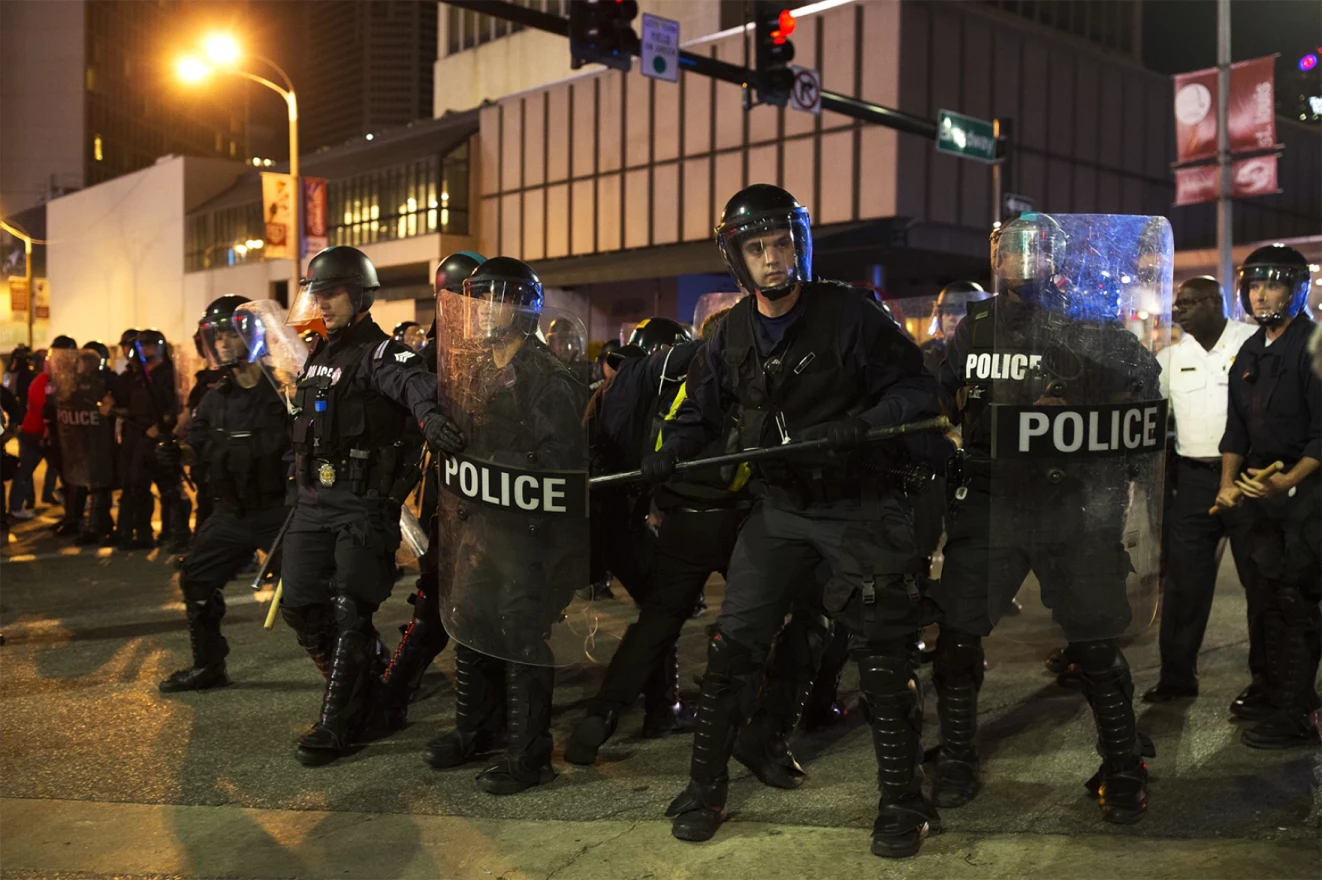Kansas City is the only major city in the country where the city’s elected leaders don’t control the local police department — a state-appointed police board does.
Up until 2013, St. Louis was in the same boat.
However, the city gained local control of its police department after a 2012 statewide referendum.
Now 10 years after the city officially reclaiming supervision of the police, a Missouri Senate bill aims to put St. Louis’ police department back under state control — a policy originally born out pro-slavery leaders’ attempt to maintain control 150 years ago.
“State control originally took hold in St. Louis because Claiborne Jackson, Missouri’s segregationist governor during the Civil War, feared a city in which the Union would control the arsenal,” Dan Isom, St. Louis’ public safety director, said in prepared remarks for the Senate committee hearing Wednesday.
The bill proposes that Republican Gov. Mike Parson would appoint four police commissioners, who would serve on a board alongside the president of the St. Louis Board of Alderman. The police board would assume control over the city’s police department on Aug. 28.
It states the mayor or any city officer would be penalized $1,000 for “each and every offense to hinder the board,” as well as be “forever be disqualified from holding or exercising any office of the city.”
The city would be required to maintain no less than 1,142 members on the police force under the legislation.
Sen. Nick Schroer, a Republican from St. Charles County, said he’s concerned about crime in the city spreading to his district.
“Our goal is to create a safer city of St. Louis, a stronger region that will protect people whenever they want to bring their families in their businesses into the city of St. Louis,” he said.
Schroer also said promises were made 10 years ago by the former mayor to lower crime, and they have not been met.

Isom, who was the city’s police chief in 2012 when the referendum was passed, countered that the city has made strides to decrease violent crime, despite state lawmakers’ continued push to loosen gun restrictions since 2007.
“Missouri has some of the loosest gun laws in the country,” Isom said.
Isom said when the Missouri legislature adopted permitless concealed carry in 2016, law enforcement officials warned about the impact but were ignored.
From 2016 to 2020, Isom said firearm homicides increased in the city by 50% – from 177 to 266.
However, from 2020 to 2021, he said the city’s homicide rate fell by more than 25 percent, and the violent crime rate fell 23 percent over the same time period.
“The return to local control has not resulted in an increase in violent crime,” Isom said. “An increase in weapons has increased the violence on our streets.”
Isom also said taking away the authority of local elected officials to guide policing in St. Louis would also disconnect police officers from the communities they serve.
“When a local mayor is in charge of their police force, they can serve as a translator between community needs and policing imperatives,” Isom said. “Removing this local connection will engender feelings of mistrust between officers and community, ultimately making officers less safe.”

Two St. Louis police associations — the St. Louis Police Officers’ Association and the Ethical Society of Police — testified in support of the legislation. The two associations are currently suing the city to block a law expanding civilian oversight of the police.
“The Ethical Society of Police extends its unwavering support and is proud to have worked hand in hand with Sen. Nick Schroer on this vital piece of legislation,” Sgt. Donnell Walters, the association’s president, said in a written statement.
The association leaders said low pay and officer retention in the city is a huge problem.
Sen. Brian Williams, D-University City, said the shortage of officers is not just a St. Louis problem.
“We do have a shortage of officers with the highway patrol, and they’re under state control,” Williams said. “That’s not monolithic to the City of St. Louis, so I want that fact to be out there.”
While the hearing’s focus was on police, Republican lawmakers on the Senate Transportation, Infrastructure and Public Safety Committee — a committee that doesn’t include any senators who represent the city — spent a good amount of time criticizing the St. Louis’ elected prosecutor.
Republican legislators have made it clear that challenging the authority of Circuit Attorney Kimberly Gardner — a progressive Black Democrat — is a top priority this year.
A House bill, sponsored by Rep. Lane Roberts, R-Joplin, would allow the governor to appoint a special prosecutor in the City of St. Louis for five years to prosecute violent crime cases. That’s if the governor determines that “a threat to public safety and health exists” in the city based on “reviewing various relevant statistics.”Sen. Jason Bean, R-Holcomb, asked Schroer if there was anything lawmakers could do to make Gardner prosecute cases.
Schroer said he is working on filing a separate bill to address Gardner’s “refusal” to prosecute some cases.
“Ultimately, I hope we can do the work that the Senate did a couple years ago in trying to address that issue,” said Schroer, referring to unsuccessful proposals in 2020 to take away Gardner’s jurisdiction over violent crime cases. “And hopefully we can get that in the house and fix that as well.”
If both the Schroer’s bill and Roberts’ bill pass this legislative session, the governor would have the ability to appoint people to control both St. Louis city’s police department and prosecutor’s office.
This story was originally published by the Missouri Independent, part of States Newsroom, a network of news outlets supported by grants and a coalition of donors as a 501c(3) public charity. Missouri Independent maintains editorial independence.






